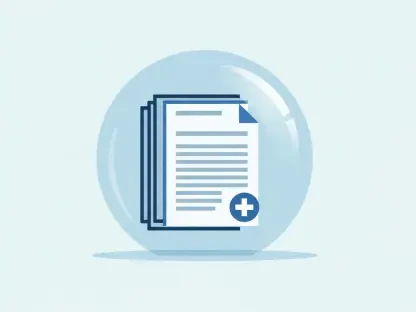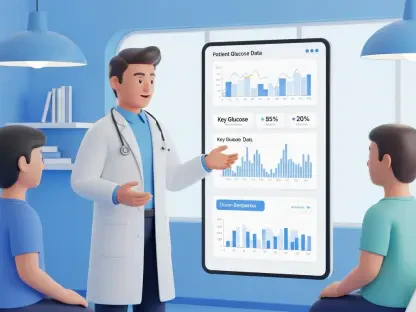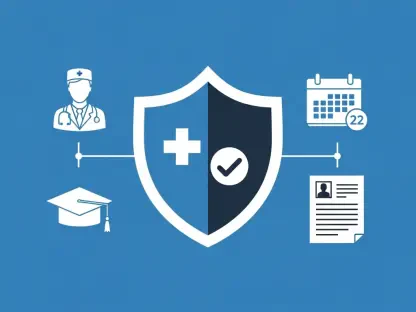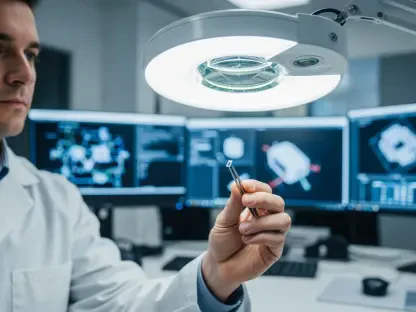Faisal Zain is a leader in medical technology advancements, dedicating his career to the development and innovation of medical devices. Today, we dive into how voice AI is transforming healthcare communication, especially in large systems like Allina Health. Faisal shares insights into the implementation of AI technologies, their impact, and future plans.
Can you elaborate on how Allina Health decided to implement voice AI in their call centers?
Allina Health recognized the growing demands placed on their customer service teams, partly from an increase in patient needs. The decision to integrate voice AI was driven by the desire to improve the patient experience by reducing wait times and allowing the staff to focus on more complex tasks. It’s about leveraging technology to enhance efficiency and patient satisfaction without expanding the workforce.
What specific roles does the AI assistant named Alli play within the Allina Health system?
Alli acts as the first point of contact for patients calling into Allina Health. This AI assistant efficiently manages routine inquiries, like scheduling and rescheduling appointments, and answers general questions about hours, locations, or billing. The goal is to streamline these processes so that human representatives can focus on more nuanced patient interactions.
How does Alli handle tasks like booking and rescheduling appointments?
Alli uses intelligent voice recognition and processing to guide callers through appointment booking or rescheduling seamlessly. The system is designed to understand various directives and confirm the requested changes, ensuring a hassle-free experience for patients.
What kind of general questions can Alli answer?
Alli is equipped to provide information on a wide range of topics, such as operation hours, clinic locations, and service details. Additionally, Alli can help address billing inquiries, offering a comprehensive solution for common patient questions.
Are there any plans to expand Alli’s capabilities in the near future?
Yes, there are exciting developments on the horizon. SoundHound is working on new features that will enable Alli to assist with more sophisticated tasks, like refilling prescriptions and helping patients find doctors or clinics tailored to their needs.
How will these features benefit both patients and staff?
Enhancing Alli’s capabilities means further reducing the time patients spend on the phone and freeing up staff to handle more critical or personalized patient care. This further streamlines operations and boosts satisfaction for both patients and healthcare team members.
How does the AI system handle complex inquiries that may require human intervention?
For more intricate issues or if a caller prefers to speak with a live person, Alli automatically connects the caller to a human representative. This transition happens smoothly, with all relevant details transferred, so the patient doesn’t have to start from scratch.
What is the process for transferring a caller from Alli to a human representative?
The transfer system is designed to be seamless, ensuring that the call is handed over to a representative with all previous interactions intact, minimizing the need for patients to repeat themselves and ensuring a consistent experience.
How is patient information managed during these transfers?
All patient data relayed through Alli is securely and promptly transferred to the human representative. This ensures continuity in the communication chain while adhering to privacy standards to protect patient information.
What impact has Alli had on reducing wait times at Allina Health’s call centers?
Implementing Alli has significantly reduced call waiting times. Current statistics show that around 80% of calls are answered within 45 seconds, marking a substantial improvement from previous metrics.
How did Alli contribute to reducing call times by 5-10 seconds?
Alli’s ability to handle routine inquiries instantly means less time is spent on hold or navigating the call center system. This efficiency helps reduce each call by precious seconds, which adds up significantly across the volume of calls handled daily.
Can you provide current statistics on call waiting times?
Certainly, since Alli’s introduction, 80% of calls at Allina Health are answered in 45 seconds or less. This rapid response rate greatly enhances the patient experience and alleviates the pressure on customer service representatives.
How has the introduction of Alli affected the Allina Health customer experience team?
Alli has transformed how the customer experience team operates by offloading routine tasks, allowing human representatives to focus on areas requiring their expertise. This has positively affected their workflow, empowering them to address more complex patient needs.
What changes have occurred in the workload of human representatives?
The workload has shifted significantly. By handling simpler requests, Alli has afforded representatives more time to dedicate to complex cases, enhancing the quality of service and support they can offer.
How do staff view Alli as part of the ‘care team’?
Staff members see Alli as a valuable teammate, facilitating their roles by reducing routine burdens. Alli’s presence allows them to play to their strengths, providing the in-depth care and attention that certain patient needs demand.
Can you discuss the importance of voice AI in addressing the increasing patient needs at Allina Health?
Voice AI like Alli offers a strategic solution to an ongoing challenge in healthcare—meeting rising patient demands without overextending resources. It fits perfectly into the objective of meeting patients where they are, providing efficient and accessible support.
How does voice AI align with Allina Health’s goals for improving patient care and service delivery?
By integrating AI into its operations, Allina Health enhances both care delivery and patient satisfaction. The technology aligns with its goals by offering quick, efficient service through a patient’s chosen mode of contact, optimizing care pathways and service delivery.
What feedback have you received from patients regarding their experience with voice AI?
Feedback has been largely positive, with patients appreciating shorter wait times and the ease of resolving common issues promptly. This satisfaction reflects in enhanced trust and engagement with the health system.
Is there any data to suggest an increase in patient satisfaction or efficiency since implementing Alli?
The current metrics undeniably show increased satisfaction, with faster response times and streamlined processes leading to higher approval ratings from patients. This efficiency gain underscores the potential impact of AI in healthcare.
What is your forecast for the future of voice AI in healthcare systems like Allina Health?
I foresee continued expansion and refinement of voice AI capabilities. As these technologies evolve, they’ll play an ever-greater role in personalizing patient interactions and addressing healthcare challenges. Integration and human-AI collaboration promise to redefine the delivery of care across the sector.









